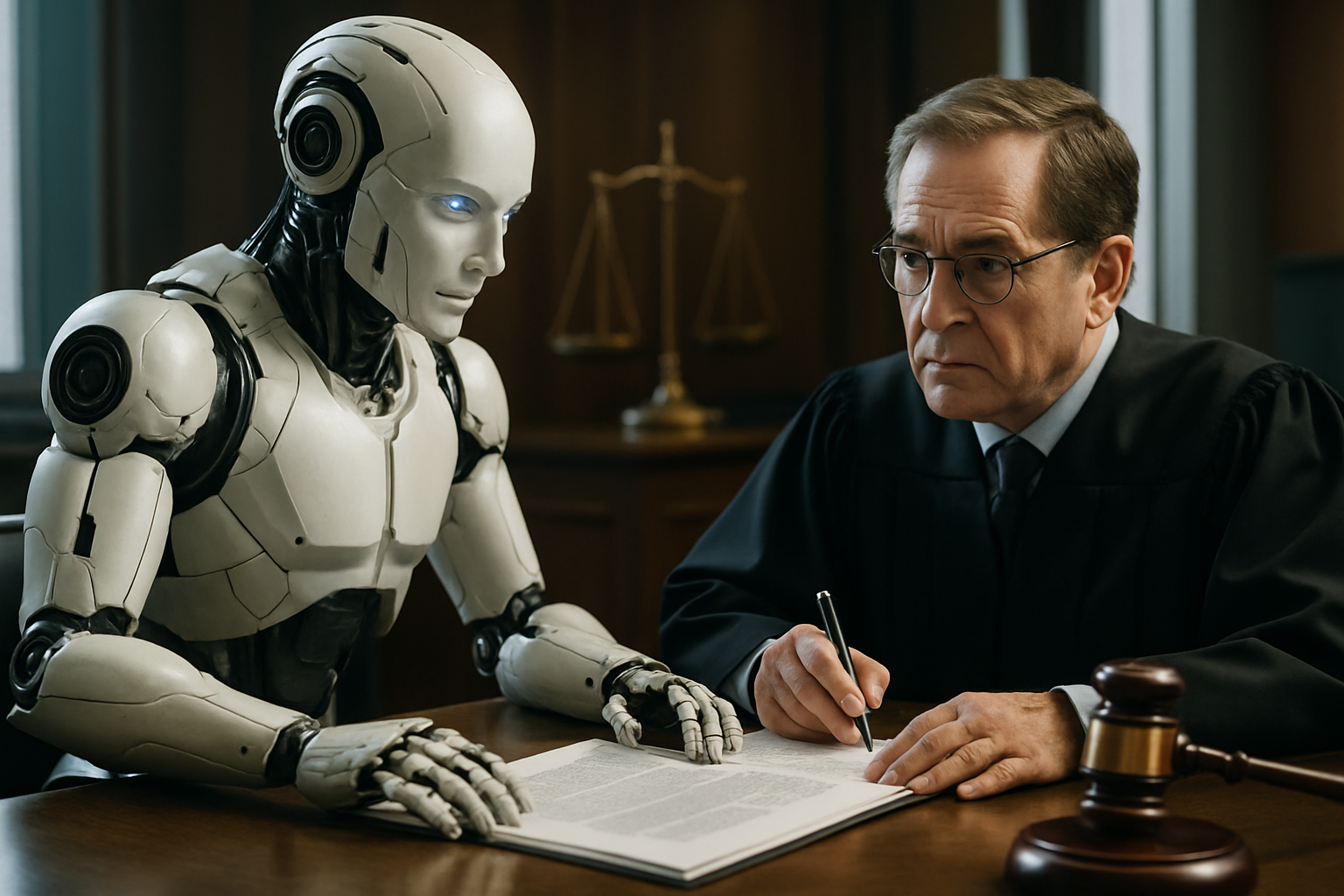The Legal Implications of Artificial Intelligence: A New Frontier
Introduction: Artificial Intelligence (AI) is rapidly transforming our world, bringing with it a host of legal and ethical challenges. This article delves into the legal implications of AI, exploring the current legal landscape, recent developments, and the potential impact on society.

The Emergence of AI and Its Legal Challenges
Artificial Intelligence, a term coined in 1956, refers to the simulation of human intelligence processes by machines, particularly computer systems. These processes include learning, reasoning, problem-solving, perception, and language understanding. As AI technology has advanced, it has permeated various sectors, including healthcare, finance, transportation, and more. However, this rapid advancement has outpaced the development of legal frameworks to govern its use, leading to a host of legal challenges.
Current Legal Landscape
Currently, there is no comprehensive legal framework governing AI at the international or national level. Instead, AI is regulated indirectly through various laws, such as data protection laws, intellectual property laws, and contract laws. For instance, the European Union’s General Data Protection Regulation (GDPR) has provisions that indirectly regulate AI, such as the right to explanation, which allows individuals to seek explanations for decisions made by automated systems.
Recent Legal Developments
In recent years, there have been several legal developments related to AI. For example, in April 2021, the European Commission proposed new regulations that aim to ensure AI’s safe and lawful use. The proposed regulations include requirements for transparency, accountability, and human oversight of AI systems. Similarly, in the United States, several states have enacted laws related to AI, such as Illinois’ Artificial Intelligence Video Interview Act, which regulates employers’ use of AI in video interviews.
Implications and Impact on Society
The legal implications of AI are vast and multifaceted. On one hand, AI has the potential to improve efficiency and accuracy in various sectors, such as healthcare and finance. On the other hand, it raises serious concerns about privacy, discrimination, and accountability. For instance, AI systems that process personal data can infringe on individuals’ privacy rights. Similarly, AI systems can perpetuate or exacerbate discrimination if they are trained on biased data.
The Road Ahead
As AI continues to evolve, it is crucial for legal frameworks to keep pace. This will require a delicate balance between fostering innovation and protecting individuals’ rights. It will also require international cooperation, given the global nature of AI technology. While the road ahead is uncertain, one thing is clear: the legal implications of AI represent a new frontier in law and government.
In conclusion, the legal implications of AI are a complex and rapidly evolving area of law. As AI continues to permeate various sectors, it is crucial for legal frameworks to keep pace. This will require a delicate balance between fostering innovation and protecting individuals’ rights, as well as international cooperation. While the road ahead is uncertain, the legal implications of AI represent a new frontier in law and government, offering both challenges and opportunities for legal professionals and policymakers.





